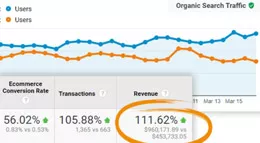Black Hat Tactics Used in Social Media (And How to Fight Them)
Google may be laying the hammer down on black hat search marketing, but a new side of darkness is emerging from the depths of Facebook and other social channels. Brace yourselves, social media marketers, it’s getting dirty out there!
Keep reading to pinpoint the tactics some blackhatters are using and what you can do to thwart them – but first, let’s get back to the basics.
What Is Black Hat?
Black hat was originally a term used to describe hackers who crack into security systems with malicious intent. As SEO began to grow and search marketers increasingly found ways to game the system and improve rankings, search engines laid down guidelines.
Any person who tries to manipulate or use tactics outside of a search engine’s guidelines for their own benefit is deemed as a black hat or using black hat techniques. This term also applies to the business of social media marketing. There are many companies that use illegal methods to promote a given social media profile that sooner or later causes problems for the user.
Black Hat Social Media Tactics
Just as search engines set rules and guidelines for their use, so do social media sites. Below are a few of the most common black hat social media practices.
What You Can Do to Fight Off Black Hat Tactics
Even though each situation will differ from site to site, here are a few ways you can fight off black hat tactics used against you or by your competitors.

